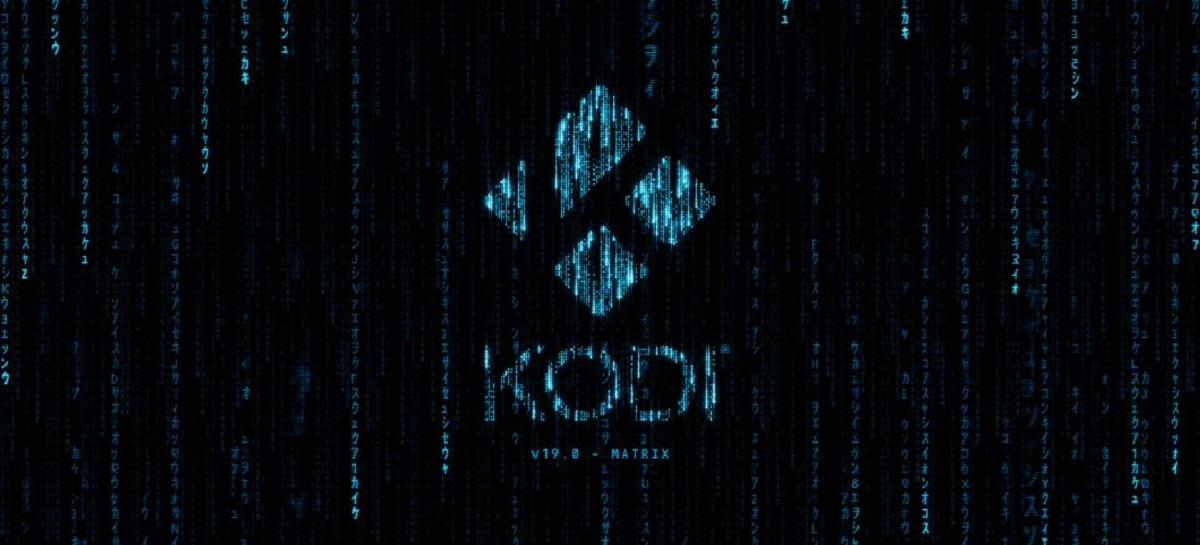
After two years from the publication of the last significant version, the release of the new version of Kodi 19.0 was announced in which it stands out that Python 2 support removed Well, plugin development has been translated into Python 3.
In addition, it is also highlighted that A single generic Linux executable was provided that supports running on X11, Wayland, and GBM.
Recall that initially, the project aimed to create an open media player for the XBOX game console, but in the development process it was transformed into a multiplatform media center that works on modern software platforms.
Among the interesting features of Kodi, we can highlight the support for a wide range of multimedia formats and hardware accelerated video decoding, support for remote controls, the ability to play files through FTP / SFTP, SSH and WebDAV, as well as also the ability to control remotely through the web interface and the availability of a flexible plugin system implemented in the Python language and available for installation through a special plugin directory.
Main news of Kodi 19.0
Since the last version, around 5 changes have been made from 50 developers in the code base, including about 600 thousand lines of new code added.
Of the main innovations stand out on Kodi 19 metadata processing, which was significantly improved as new tags were added and the ability to upload files with labels via HTTPS, as well as improved handling of multi-disc CD sets and collections: album release dates and album playback duration.
In addition, the capabilities of the media library have been expanded since the connection of various components with the music library has been strengthened, for example, to retrieve information about musicians and albums, display videos and albums simultaneously during search, display additional information in dialogues.
Estuary's default theme, which has been optimized for remote control TV screens, has been redesigned for the music playback window. Additional multimedia information flags have been added to the display window.
By default, the playlist is displayed in widescreen mode with the ability to move the list to any area of the screen via the side menu, plus a new information block "Now Playing" was added, which shows detailed information about the currently playing song and the next song in the playlist.
On the other hand, we can find support for Static HDR10 for all sources on Android and Dynamic HDR Dolby Vision for streaming services. Added support for static HDR10 on Windows platform.
PVR Mode was improved, since I know added a reminder system about display, along with the home screen widget implementation for groups of radio and television channels and also the interface was improved to manage channels and groups. Added the ability to sort channels and EPG items according to the order given by the backend.
For installed plug-ins, an origin check is provided to avoid overwriting the plug-in when a plug-in with the same name appears in a connected third-party repository.
Of the other changes that stand out:
- Additional warnings about plugin integrity or obsolescence have been added.
- Improved search performance, EPG and TV guide.
- An API is provided for developing plugins for PVR in C ++.
- Improved image quality in games with pixel graphics.
- Built-in software video decoder in AV1 format.
New OpenGL-based video scaling drivers have been implemented. - Support for the tvOS platform has been added and support for 32-bit iOS has been removed.
- The iOS platform provides support for Bluetooth game controllers such as Xbox and PlayStation.
- Added indicator of free and total space on the drive.
- Added a warning about potential security issues when launching the web interface on an external network interface.
Finally, if you are interested in knowing more about it, you can check the following link.
How to install Kodi on Ubuntu and derivatives?
Kodi is distributed through installation packages from its official website, but in the case of Ubuntu we have an official repository which we can use to install this entertainment center on our computer.
For this we must open a terminal and execute the following commands.
First we must add the Kodi repository to the system:
sudo add-apt-repository ppa:team-xbmc/ppa
We notify the system that we have added a new repository:
sudo apt update
And finally we install the application with this command:
sudo apt install kodi
As long as I still do not have support for Chromecast it is useless.
I agree, it's a feature that many in the community have been asking for for a long time.